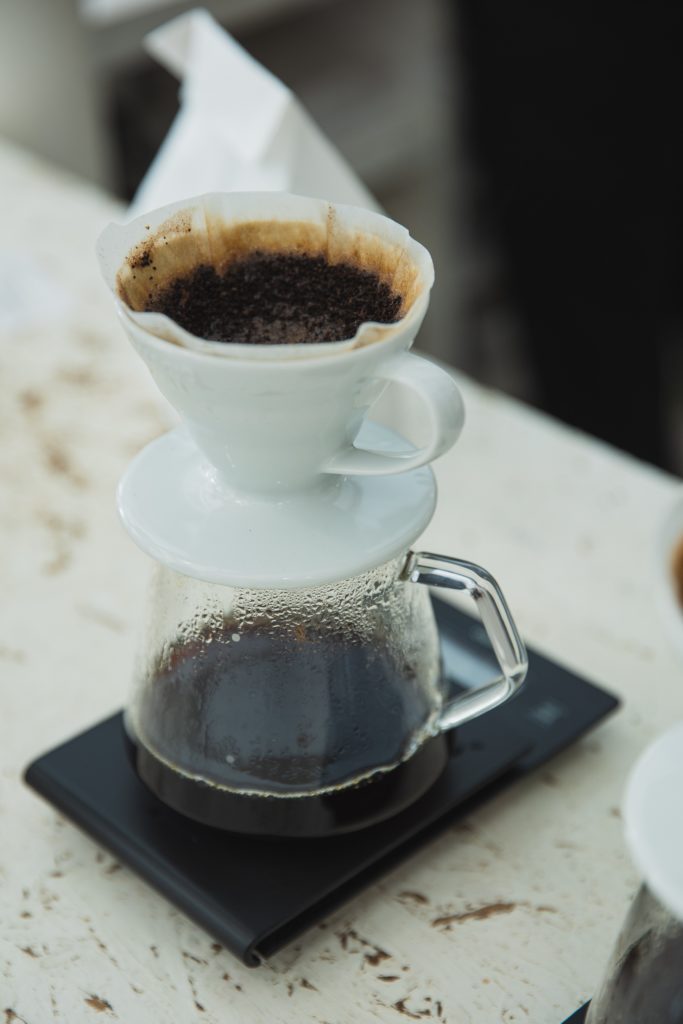It’s one of the oldest and cheapest ways to brew coffee: the drip method. You may know this method under a different name, like filter coffee. We tell you everything about this popular brewing method.
It doesn’t matter whether you are an experienced barista, like to make a cup of coffee at the campsite or prefer this way at home: the drip method is accessible to everyone.
History of the drip method
At the beginning of the 20th century, it was housewife Melitta Bentz who invented the coffee filter. She was annoyed that the coffee grounds ended up in her cup and decided to filter it. Melitta did this with tissue paper from her son’s school notebook.
First, she put the tissue paper over the glass, then put the ground coffee on it and poured hot water over it. On June 20, 1908, she decided to apply for a patent. Together with her husband Hugo, she sets up a company for the sale of coffee filters.
The meaning
You can derive a lot from the name for this coffee. The drip method gets its name from the process: coffee drips through the filter. The synonym filter coffee owes its name to the filter used in this method of brewing coffee.
The process is therefore quite simple: You start with using a paper filter. Then, the ground coffee beans are added here and after that, the water is poured over this, causing fresh coffee to drip from the filter. Finally, the coffee is collected in a jug, and voila: it is ready to serve. Filter coffee is ideal for brewing black coffee.

The Taste
Some people claim that after all these years, you still have to go with filter coffee for the richest flavors. The filter appears to hold back bitter flavors and other substances, making the coffee more flavorful.
Drip coffee vs. Pour over coffee
When you look at these two methods from a distance, they seem identical. However, there are some differences. The principle is the same for both. Yet, there are some differences. For example, the brewing time is different at both and the speed and water flow. These small differences ultimately affect the taste of the coffee.
Any questions or would you like to find out more about roasting and coffee? Check out our knowledge base.





